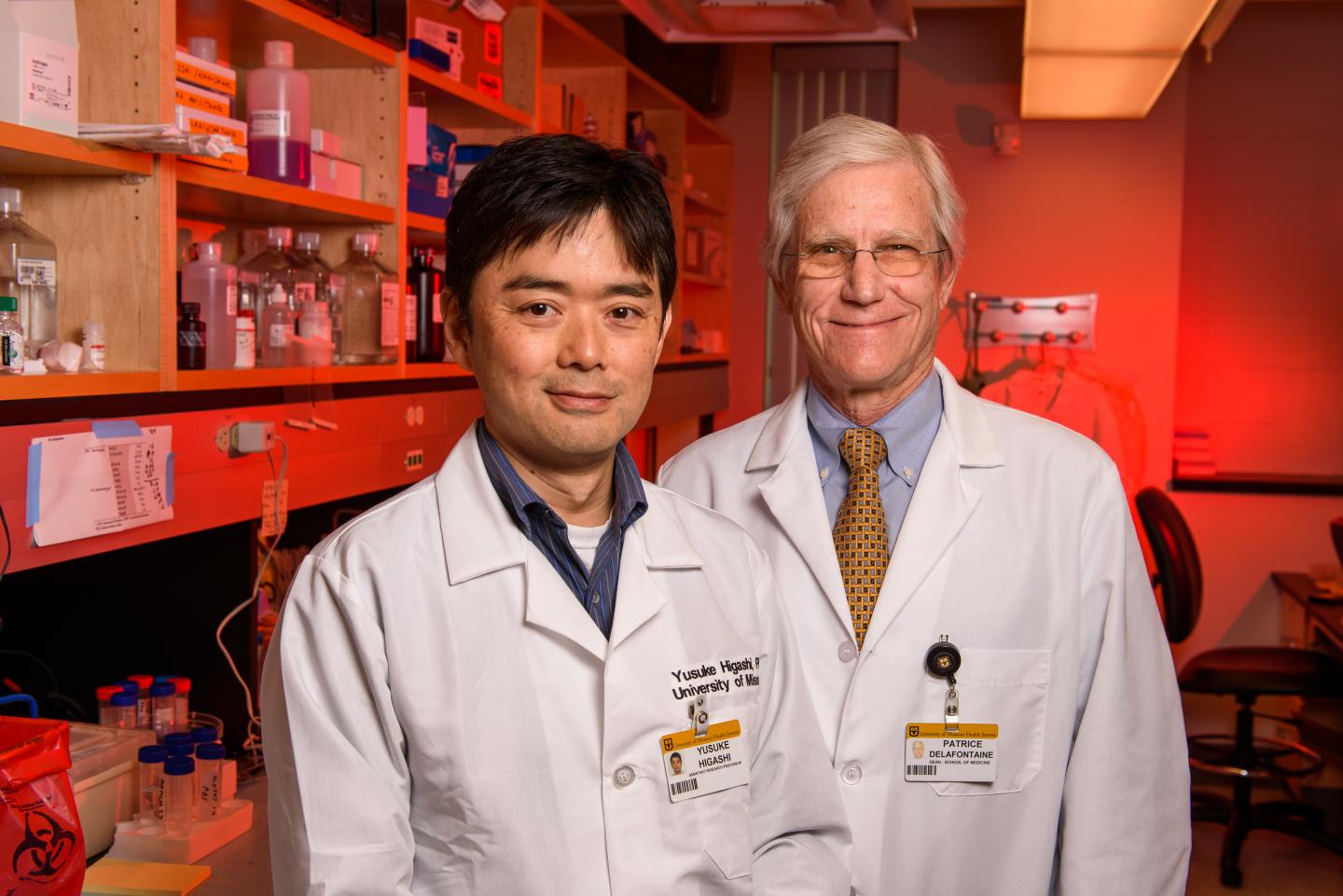
COLUMBIA, Mo. (June 15, 2016) — As men and women grow older, their chances for coronary heart disease also increase. Atherosclerosis is a condition in which plaque builds up inside the arteries, which can lead to serious problems, including heart attacks, strokes or even death. Now, researchers at the University of Missouri have found that Insulin-like Growth Factor-1 (IGF-1), a protein that is naturally found in high levels among adolescents, can help prevent arteries from clogging. They say that increasing atherosclerosis patients’ levels of the protein could reduce the amount of plaque buildup in their arteries, lowering their risk of heart disease.
“The body already works to remove plaque from arteries through certain types of white blood cells called macrophages,” said Yusuke Higashi, Ph.D., assistant research professor in the Division of Cardiovascular Medicine at the MU School of Medicine and lead author of the study. “However, as we age, macrophages are not able to remove plaque from the arteries as easily. Our findings suggest that increasing IGF-1 in macrophages could be the basis for new approaches to reduce clogged arteries and promote plaque stability in aging populations.”
In a previous study, Higashi and Patrice Delafontaine, M.D., the Hugh E. and Sarah D. Stephenson Dean of the MU School of Medicine, examined the arteries of mice fed a high-fat diet for eight weeks. IGF-1 was administered to one group of mice. Researchers found that the arteries of mice with higher levels of IGF-1 had significantly less plaque than mice that did not receive the protein. Since the macrophage is a key player in the development of atherosclerosis, the researchers decided to investigate potential anti-atherosclerosis effects of IGF-1 in macrophages.
“Our current study is one of the first ever to examine a link between IGF-1 and macrophages in relation to vascular disease,” Delafontaine said. “We examined mice whose macrophages were unresponsive to IGF-1 and found that their arteries have more plaque buildup than normal mice. These results are consistent with the growing body of evidence that IGF-1 helps prevent plaque formation in the arteries.”
The researchers also found that the lack of IGF-1 action in macrophages changed the composition of the plaque, weakening its strength and making it more likely to rupture and cause a heart attack.
In future research, Higashi and Delafontaine plan to conduct the same study on larger animals before eventually studying human subjects. Limitations to the current study include the small animal model, and researchers say studies on larger animals genetically closer to humans will be important for furthering the development of IGF-1-based therapeutic strategies.
###
The study, “Insulin-like Growth Factor-1 Receptor Deficiency in Macrophages Accelerates Atherosclerosis and Induces an Unstable Plaque Phenotype in Apolipoprotein E Deficient Mice,” recently was published in Circulation. Funding for the study was provided by the National Institutes of Health (R01HL070241), (R01HL080682), (R21HL113705), (R01HL59976), (P01HL095486), (R01AA221081), and the American Heart Association (13GRNT17230069). The content of the article is solely the responsibility of the authors and does not necessarily represent the official views of the funding agencies. The researchers have no conflicts of interest to declare related to this study.
Media Contact
Diamond Dixon
[email protected]
816-812-6141
@mizzounews
http://www.missouri.edu
The post Researchers find potential key to preventing heart attacks, strokes in older adults appeared first on Scienmag.





